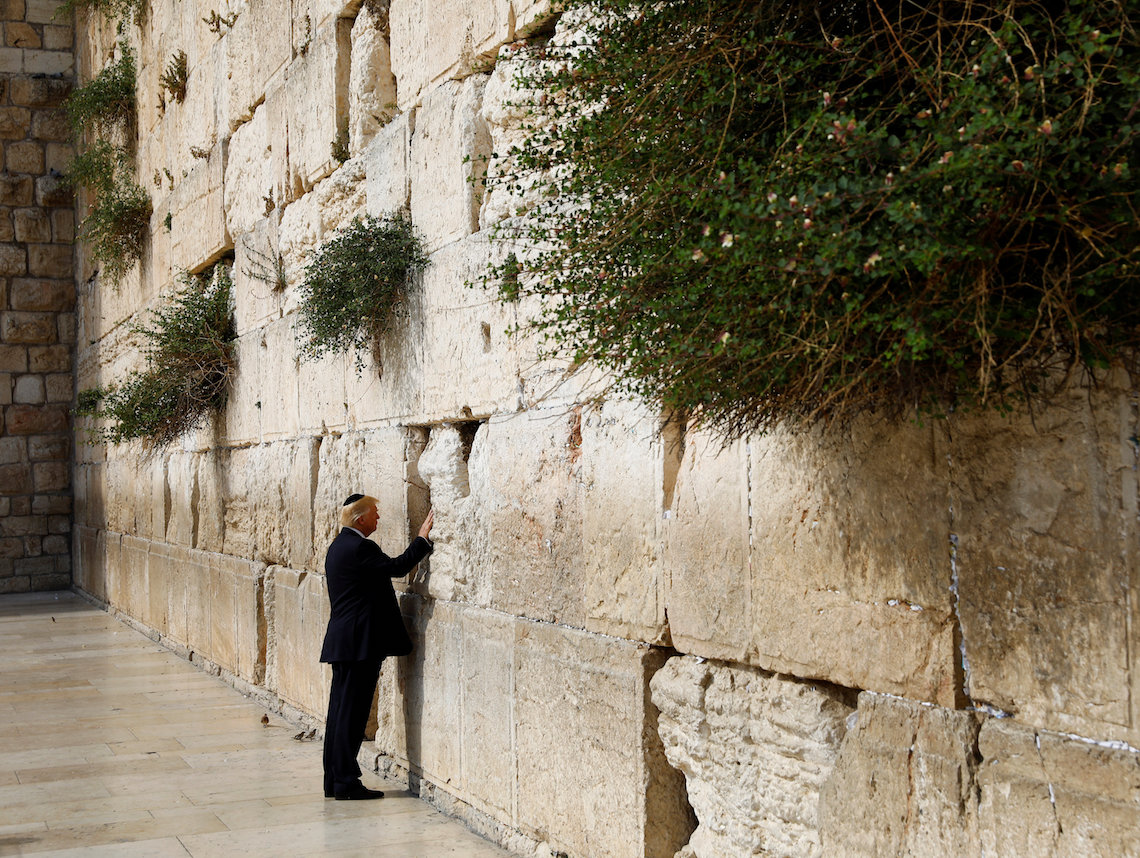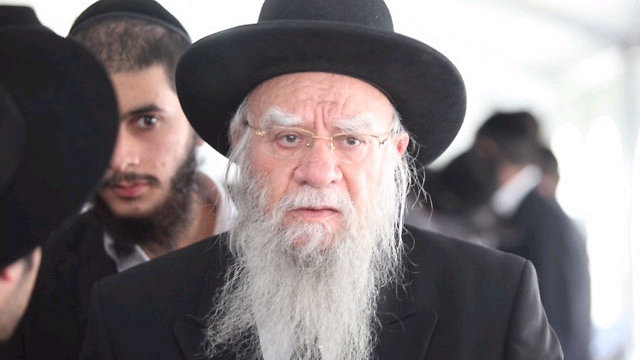Jared & Ivanka: An Embarrassment to "Judaism" - (And The Corrupt Rabbis That Conducted This Hoax ...)
 | ||
| THE MAN RESPONSIBLE FOR THIS FRAUDULENT CONVERSION |
Last weekend in Riyadh, Saudi Arabia Jared Kushner and Ivanka Trump demonstrated for all of us the real meaning of chillul haShem, desecrating God’s name.
The
first instance was the trumped up story that some rabbi gave them
permission to travel with President Trump on his flight from Washington
which left there on Friday and arrived in Riyadh on Shabbat. The
phantom rabbi has not been identified but, presumably, it was the same
person who gave them permission to ride around Washington on January
20th to attend the inauguration balls that evening.
The second instance was in Riyadh itself on
Shabbat, where video records of the President’s meetings there showed
Jared and Ivanka getting in and out of vehicles to attend those very
same meetings.
Now one might ask what the big deal is. They
are not the first Jews in politics who were or are seen not observing
the Sabbath. That, of course, is true and while it may bother us from
time to time, we know that not every Jew observes all of the strictures
of Jewish law.
But in their case they trumpet their orthodoxy
to the world and wear it as a badge of honor. When politicians choose
to do that they perforce take on themselves an obligation not to break
the Sabbath and do whatever they can to ensure that they are shomre Shabbat, that
is Sabbath observers as Jewish law dictates. Everyone knows that there
is no orthodox Rabbi who would give permission to ride on the Sabbath
except in circumstances of pikuach nefesh, such as the need to save a life or some similar emergency such as defending oneself from imminent attack.
One could argue, for example, that given the
fact that the inauguration parade in January ran into the Sabbath, it
would not have been safe for them to have walked home and, as such, it
was permissible to ride. But to go to the inauguration balls that
followed on Friday night? To ride around Riyadh on the Sabbath to
attend meetings with the Saudi king? Do they not realize the shame they
brought on the Jewish people for not being observant of their own
faith? Does anyone think for a moment that the Saudis would have
scheduled such meetings on Friday? Or that this message of chillul haShem was lost on the Saudis?
Yet, even more critical is the message that
this sends to the luckless Jew working in a business in Little Rock,
Arkansas, for example, who tells his boss that in the winter he needs to
leave work early to be home for Shabbat. And his boss’ answer? “I
really don’t understand, the president’s daughter and son in law are
observant and they get permission to work on the Sabbath, why can’t
you?”
When I was going through officer training in
the US Army so many years ago, Jewish officers had to attend a special
session with the Jewish chaplain. One of the lessons he taught (at that
time they were all “he’s”) was that whether or not we were personally
observant we needed to be careful what we did and did not do on Shabbat
because our conduct could negatively influence how a religious enlisted
person would be treated by his superior when a request came up not to
work on Shabbat.
Regardless of our individual observance levels once we
thought about it we knew that the advice was spot on.
Jared and Ivanka can choose to be
non-observant and do whatever they want to do vis-à-vis Jewish practices
and, while I wish it would be otherwise, I can live with that. Or, as
they claim to do, they can choose to be compliant with Jewish law as the
Orthodox interpret it, but then they have to stick by it. No phantom
dispensations, no mockery of the faith and no shortcuts. It is their
choice but, once they make it and brag about it, their choices are
limited to what is generally accepted as permitted.
Roy Disney once said “When your values are
clear to you, making decisions becomes easier.” It is an axiom that the
Kushners would do well to learn so that they don’t continue to be an
embarrassment to those who try to live their Jewish values truthfully
every day.
http://blogs.timesofisrael.com/jared-ivanka-an-embarrassment-to-judaism/
READ:
http://theunorthodoxjew.blogspot.com/2017/05/rabbi-moshe-feinstein-states-very.html
The questions posed with regard to problematic contemporary conversions are threefold in nature:
Rabbi Moshe Feinstein states the very marriage of a gentile woman to a non observant Jew, is equivalent to an open declaration that she will not observe the precepts. This is so, because it is highly unlikely that the gentile member of such a union, will be more committed to Judaism than her remiss Jewish husband...
READ:
http://theunorthodoxjew.blogspot.com/2017/05/rabbi-moshe-feinstein-states-very.html
Rabbi David Bleich on the Conversion Crisis - Considered by Most Jewish Scholars as a Posek of the Greatest Stature
When Rabbis Become Prostitutes - The Redefining of an Orthodox Jew - "Jared every year sends a $500 check before Passover to one of his former day school teachers “as a gesture of appreciation... "
READ:





















